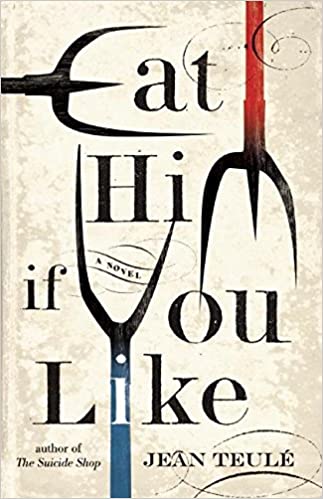 By JEAN TEULE (Gallic Books; 2009/11)
By JEAN TEULE (Gallic Books; 2009/11)
Definitely one for the truth-is-stranger-than-fiction category, a novelized account of the “Affaire de Hautefaye” that occurred on August 16, 1870. On that day Alain de Moneys, a kind-hearted young nobleman, set out to attend a fair in the French village Hautefaye, promising his mother he’d “just go there, say hello to a few people and come straight back.”
Alain’s ordeal begins shortly after he reaches the fair, whose attendance was estimated at around 700. Morale was extremely low at the time due to a severe drought and setbacks by France in the Franco-Prussian war, so when Alain is misheard making a perceived unpatriotic comment he becomes the unwitting focal point of the drunken crowd’s frustration. This results in a flurry of shouts and beatings that quickly give way to systematic torture that spans the length of Hautefaye.
A rough overhead map is provided at the start of several chapters showing the precise route of Alain’s torment, which commences at one end of Hautefaye and concludes in a dried-up lake at the opposite end. Chapters are named after the various stations of Alain’s torture—“The Low Dry-Stone Wall,” “The Blacksmith’s Forge,” “The Main Street,” etc—with author Jean Teule providing an unblinking, blow-by-blow account of the brutality, which comes to include asphyxiation, stabbing, binding, amputation and burning. Needless to add, Alain doesn’t survive the day.
There are (possibly fabricated) happenings in this novel that would never be acceptable in a purely fictional format. These include an early passage in which Alain’s lady love attempts to lessen his torment by seducing one of the aggressors, only to have her cries of “More!” be misinterpreted as encouragement by the ravenous mob to increase the brutality. Even more outrageous is the final insult performed on Alain’s defiled corpse, in which the cannibalism suggested by the title actually comes into play.
As a study in mob psychology EAT HIM IF YOU LIKE goes far beyond the likes of THE OX-BOW INCIDENT to enter into Jack Ketchum territory. Jean Teule spares the reader nothing in this pitiless account, and renders it in admirably lean, padding-free fashion that sticks to the events of the Hautefaye Affair and its aftermath (in which four of Alain’s tormentors were guillotined) while keeping the background information (such as the particulars of the then-raging Franco-Prussian War) to a minimum. This results in a short (112 page) book that nonetheless packs a sizeable punch.
My only real complaint is with the author’s constant attempts at explaining the mob’s behavior in throwaway sentences like “The instinctive, collective nature of the massacre diluted responsibility” and “The murder that the crowd was about to commit was a declaration of love for France”(!). In truth no adequate explanation exists for what occurred that awful day in Hautefaye, but Teule deserves credit for rendering it in such unforgettable fashion.
